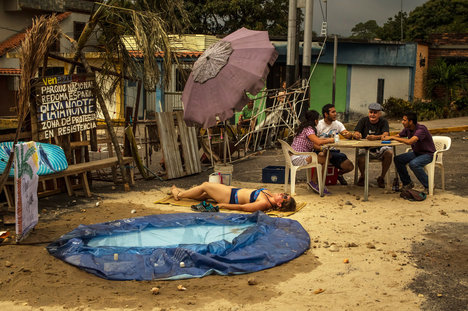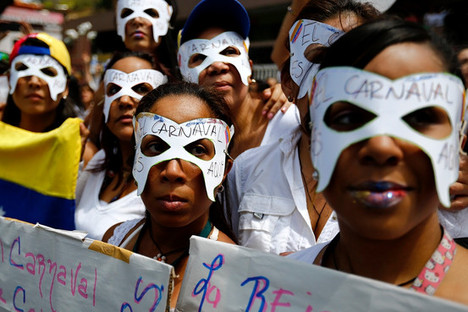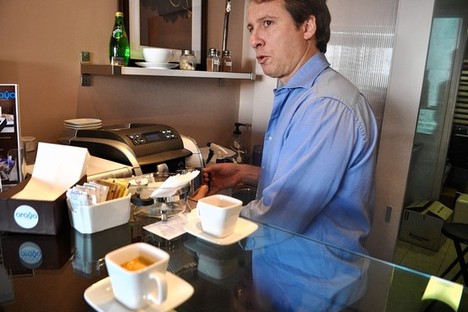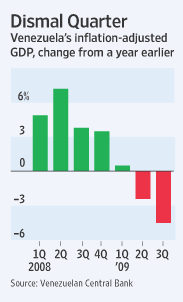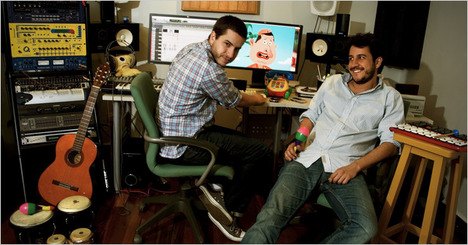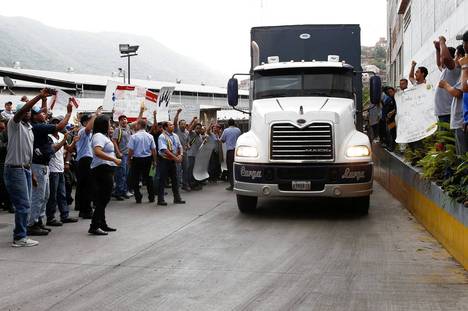 “Polar workers protested the government’s decision to expropriate warehouse land in Caracas on Thursday [July 30, 2015].” Source of caption and photo: online version of the WSJ article quoted and cited below.
“Polar workers protested the government’s decision to expropriate warehouse land in Caracas on Thursday [July 30, 2015].” Source of caption and photo: online version of the WSJ article quoted and cited below.
(p. A7) CARACAS, Venezuela–The government ordered major food companies, including units of PepsiCo and Nestlé Inc., to evacuate warehouses in an area where the state plans to expropriate land to build low-cost housing.
. . .
Manuel Larrazábal, a director at Polar, said he hoped the government would reconsider the measure. “We don’t doubt that they need to construct housing, which is so important, but we ask why it has to affect active industrial facilities.”
. . .
Some workers painted messages including “No to expropriation” and “Let us work” onto the walls of the industrial park and on dozens of trucks that lined the streets outside, which were blocked by police and National Guard. Polar said the move would affect some 600 workers, as well as 1,400 employees who transport their goods around Caracas and two neighboring states.
. . .
Polar suspended operations at its facility after getting the order Wednesday night. The expropriation order extends a history of shaky relations between it and the government, which began under the late leader Hugo Chávez and continues under his protégé, Mr. Maduro.
In recent months, the company, which is the largest beer maker in Venezuela, said it had to halt work at several plants and breweries due to labor strife. It has also struggled with difficulties in acquiring raw materials and U.S. dollars to pay overseas suppliers, a process controlled by the government due to complicated currency regulations.
For the full story, see:
KEJAL VYAS . “Venezuela Takeover Order Riles Companies; Maduro’s government wants industrial zone to build housing for poor.” The Wall Street Journal (Fri., July 31, 2015): A7.
(Note: ellipses added.)
(Note: the online version of the story has the date July 30, 2015.)




